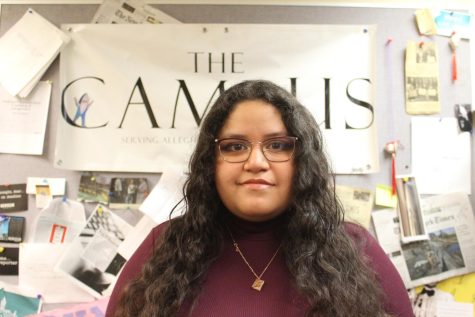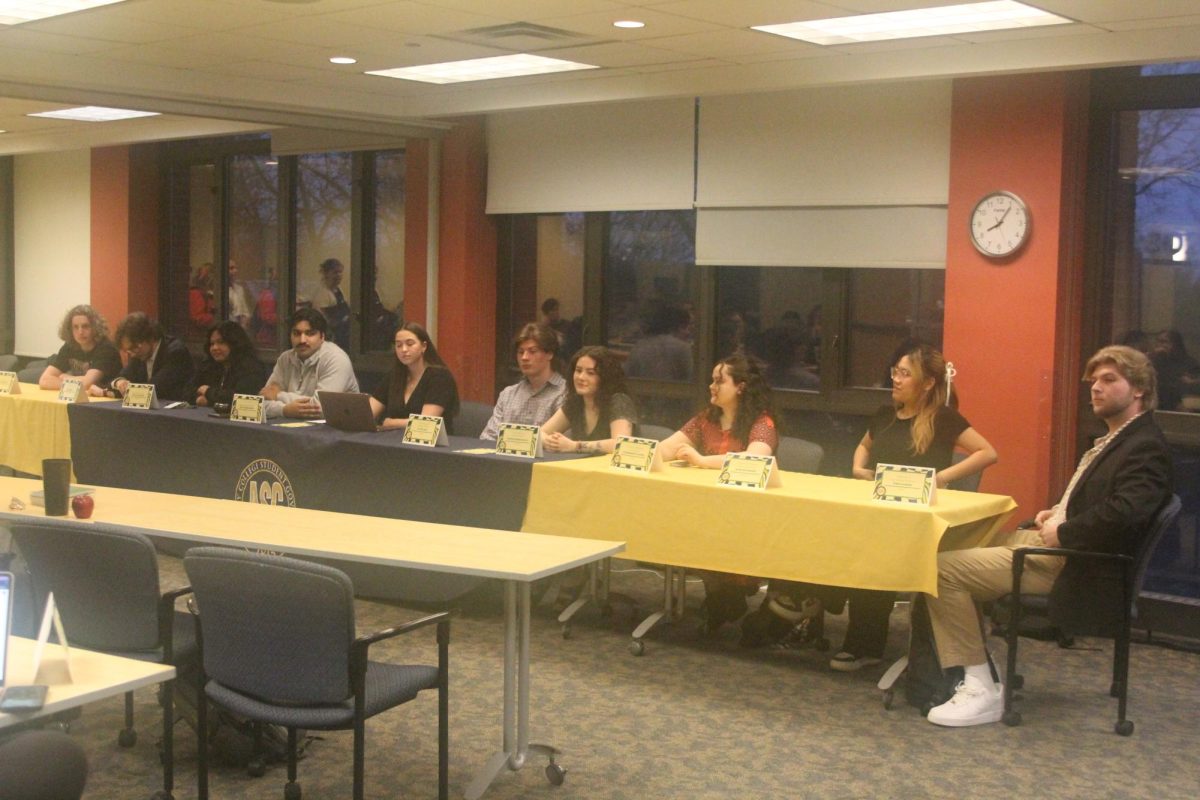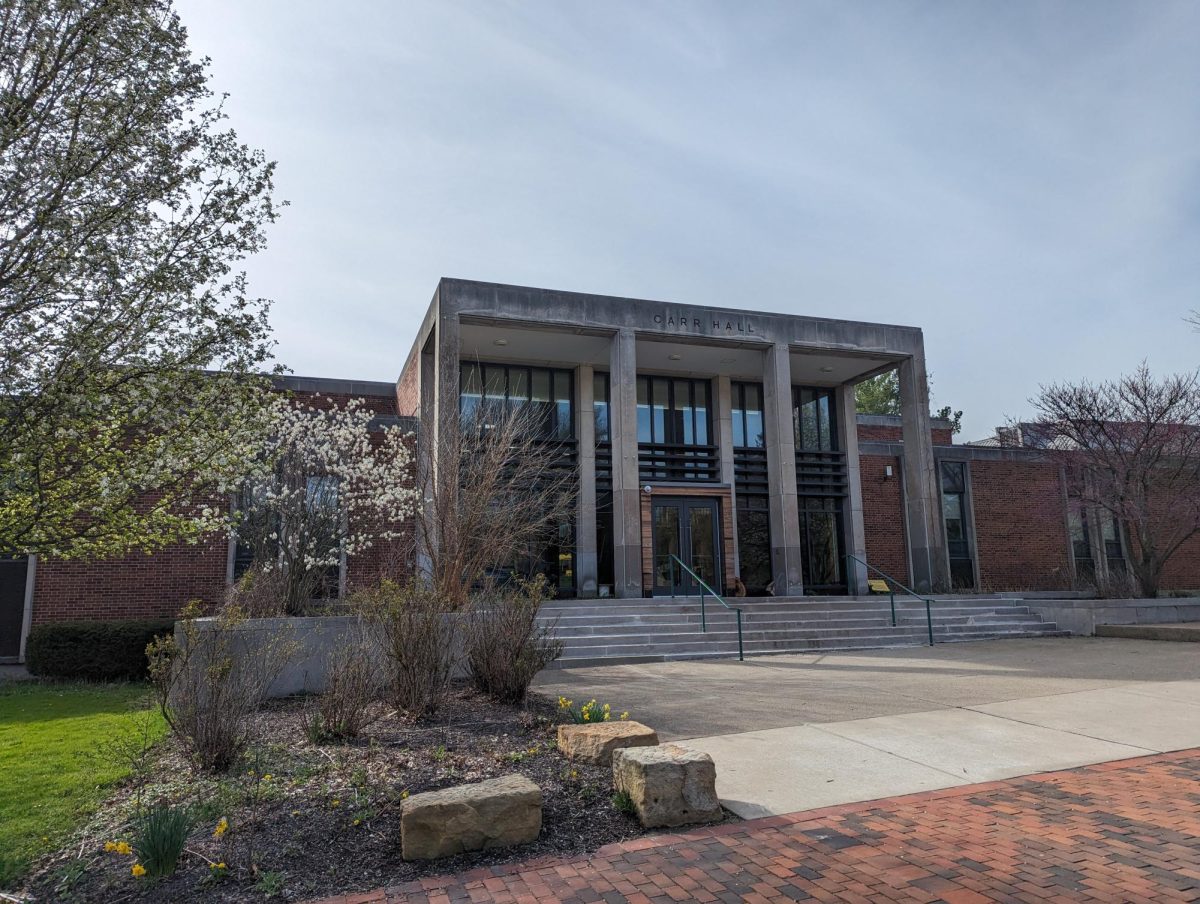The Social Justice Passover Seder gathered the Allegheny community for an evening of eating symbolic foods, celebrating the liberation of Israelites and fighting against injustice in the world today.
On Friday, April 19 at 5 p.m. Hillel and the Office of Spiritual and Religious Life hosted the Passover Seder in Schultz East Alcove to bring the community together and fight for liberation. Passover is celebrated every year during the month of Nisan in the Hebrew calendar which is around April or March.
The Seder had a 15-step structure that included singing, blessing, symbolic eating and drinking. The symbolic eating included bitter herbs, wine, vegetables, horseradish, salt water, matzah and haroset. Attendees were able to follow along with the Seder through the packets provided.
For the festive meal, Red Brick Catering served potato kugel, matzo stuffed chicken, vegan matzo ball soup, Gefilte fish and sorbet. During Passover, Jewish people do not eat food containing wheat, barley, rye, oats, spelt, and small foods like rice, according to an article by Reform Judaism.
Treasurer of Hillel Charlie Schwartz, ’25, explained the significance of the foods during the Seder.
“On the Seder plate, all of the different foods like the bitter herb are talked about in relation to the Passover story but it relates to a wider idea,” Schwartz said. “The bitterness is not just the bitterness of the oppression of our people but also the bitterness of oppression and injustice in general.”
According to an article in Time Magazine, the Passover story is about when Israelites marked their doors with lamb’s blood in order to protect their firstborn children so that the angel of death would pass over them.
President of Hillel Sydney Hammerman, ’25, added that this Seder had added significance in relation to Israel’s current war on Gaza.
The bitter food was meant to taste the tears of both Palestinians in Gaza and the tears of Israelites who were enslaved in ancient Egypt, Hammerman said.
“I think it makes people aware not only of Jewish traditions but also of the ways Judaism can be intersectional,” Hammerman said. “I overheard somebody say they had never thought of the Seder like this before.”
Vice President of Hillel V Belcher, ’26, said that it is important to remember that the Jewish community has a lot of diversity and to incorporate those stories and perspectives.
“I think sometimes we think tradition as being static and that it is something that can’t necessarily be changed,” Hammerman added. “But that’s why I love being Jewish and Judaism so much because it is fluid and it can be changed and molded.”
An example of tradition being updated is the inclusion of an orange on the Seder plate to include and specifically represent LGBTQ+ Jewish people, according to Belcher.
According to Rabbi Victor S. Appell’s contribution to Reform Judaism, the orange was chosen originally by Professor of Jewish Studies at Dartmouth College Susannah Heschel. The ritual included taking a segment of the orange, saying a blessing over the fruit and spitting out the seeds as a rejection of homophobia.
Professor of Political Science Sharon Wesoky said focusing on freedom for everyone as the theme of Passover is important right now because it has been a difficult year in the world.
“I think that it is just important to note that Passover really is a festival that’s about freedom and liberation,” Wesoky said. “So talking about social justice for everyone is a really relevant theme.”
Jewish people feel that it is their responsibility to help those who are not currently free because they were freed from slavery in Egypt, according to Hammerman.
“We, in a sense, understand the pain of this, and therefore we have the responsibility to work against injustice,” Hammerman said.
A way people can contribute to the cause of liberation is to stay informed and give as much of as themselves as they can, such as through fundraisers, protests and having a conversation with somebody who holds an opposite position, Hammerman said.
“Judaism has a huge tradition of asking questions and not taking things at face value,” Hammerman said. “And I think that by questioning the systems we were brought up into and questioning the things that you were taught to believe is the most Jewish thing a person can do.”
Hillel holds Passover Seder
Story continues below advertisement
About the Contributor

Evelyn Zavala, Staff Writer
Evelyn Zavala is a senior from San Francisco. She is majoring in Business and minoring in Journalism in the Public Interest. This is her fourth year on staff as a writer. In her free time, she enjoys reading and playing games.







